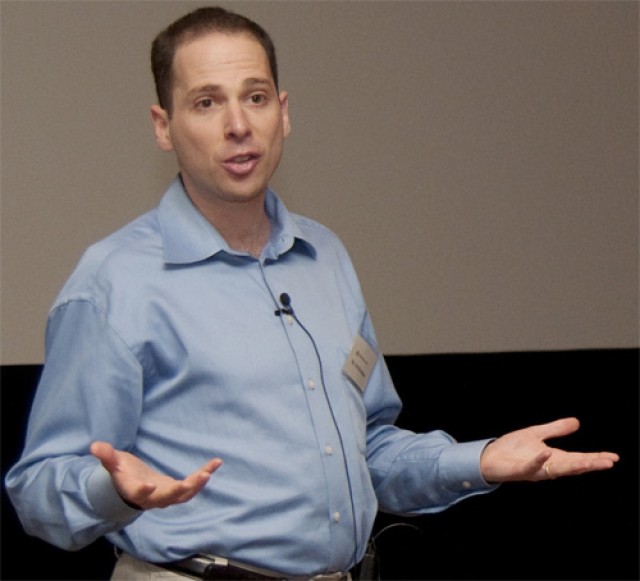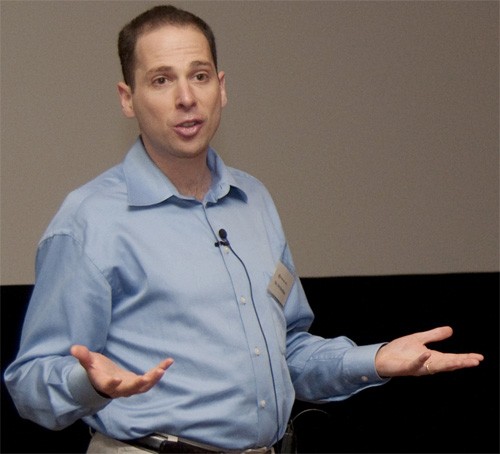
FORT LEE, Va. (March 24, 2011) -- Ori Brafman, a New York Times best-selling author and a major contributor to the Army Starfish Program, will be the featured speaker at an April 11 professional development event starting at 2 p.m. in the Fort Lee Theater. All active duty and reserve military members and interested government civilian personnel are invited to attend.
During the Army Logistics University-sponsored event, Brafman will discuss the award-winning book, "The Starfish and the Spider: the Unstoppable Power of Leaderless Organizations," that he co-wrote with fellow scholar Rod Beckstrom. It is the result of ground-breaking research in the area of organizational leadership, and its title is related to the contrasting biology of spiders, which die when their heads are chopped off, and starfish, which can multiply when any given piece is severed.
Those traits, according to the authors, can be compared to decentralized entities ranging from Alcoholics Anonymous to Wikipedia and even a terrorist organization like Al Qaeda.
"This book is about what happens when there's no one in charge," writes Brafman and Beckstrom. "When there's no hierarchy, you'd think there would be disorder, even chaos. But in many arenas, a lack of traditional leadership is giving rise to powerful groups that are turning industry and society upside down."
That notion intrigued the leaders of Headquarters, U.S. Army Training and Doctrine Command, and they began collaborating with Brafman last year to draw similar comparisons to the military hierarchy and what must be done to prepare the ranks for tomorrow's battlefield. This collaboration led to the creation of the Army Starfish Program.
"The past eight-plus years of war have taught us many things as an Army," said Gen. Martin E. Dempsey, TRADOC commanding general, during an interview last year. "One particular lesson we've learned is that decentralized threats are best countered by also decentralizing our own capabilities. To adapt to what we've learned, the Army is training its leaders to think, act and operate in a more decentralized fashion."
Brafman, who holds a bachelor's degree in peace and conflict studies from University of California at Berkeley and a Masters' of Business Administration from Stanford, spoke at a TRADOC leadership conference in Williamsburg in March 2010. He gave the Army high marks for being on "the cutting edge of non-hierarchical thinking." That's the process where - in layman's terms - employees are at the top of the figurative "org chart" because they're the ones who actually get stuff done and managers/directors provide the leadership base that relies on the power of peer relationships.
The upcoming Fort Lee Theater presentation is an excellent opportunity to learn more about Brafman's work and how it could shape the mindset of Army leadership in years to come, according to the ALU sponsors. They also described it as a "can't-miss" event that deserves maximum attendance by the Fort Lee workforce.
For more information about the upcoming presentation, call (804) 765-4917 or 765-0787. To read more about the author and his book, visit www.oribrafman.com.

Social Sharing